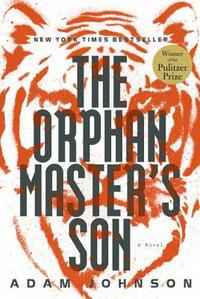Take a photo of a barcode or cover
adventurous
dark
inspiring
sad
fast-paced
Plot or Character Driven:
Character
Strong character development:
Yes
Loveable characters:
Yes
Diverse cast of characters:
Yes
Flaws of characters a main focus:
Yes
Graphic: Confinement, Death, Gun violence, Homophobia, Rape, Sexism, Sexual assault, Slavery, Suicide, Torture, Violence, Forced institutionalization, Trafficking, Murder, War
Oddly, I don't know what I think about this book. It's really three books--different genres, narrators and narrative styles, but connected in intricate ways. The violence was wearing. I don't think I would have fully comprehended the depth of the political satire had I not first read Barbara Demick's excellent non-fiction "Nothing to Envy." He's a gifted writer, which shines through especially in the first section. But I'm not eager to read anything else he wrote.
The story is about a young man in North Korea who was raised in the orphanage his father ran. It follows his strange odyssey from an outcast mistaken for one of the orphans his father tends, into the army, and into the upper echelons of North Korean society. The story has a strong theme of identity, and it is terrifying, hilarious and poignant all at the same time. I am not sure if some the anecdotes here are based on truth, but much of this stuff is too bizarre to make up. I have read several other recent Pulitzer nominees, and Orphan Masters Son stands head and shoulders above them, it is in a league by itself.
The first part of this book is awful. It was a snoozefest. It took me FOREVER to get through it. But I'm glad I did. The second part of the book totally made up for it!
The plot is revealed subtly, via a few different narrators and not chronologically. The first third moved slowly, but I'm so glad I stuck with it. The last half was suspenseful. Shows the cruelty of North Korea. Fascinating, imaginative, at times funny, at times surreal.
A well written and fascinating glimpse into life in North Korea. It was a little too heavy and dark for me right now. But given the topic, I should have been prepared for that.
I really liked most of the first book/act. But the Texas chapter was full of shallow, 1-dimensional characters who read like caricatures of Americans (Cowboy-hat wearing Senator from Texas, Proselytizing evangelical wife of the Senator, Stealth female CIA agent, etc.). I do not know if this was intentional on the part of the author. This made me wary of the rest of the book. If the American characters were caricatures, how realistic were the North Korean characters?
All said, though, the prose is beautiful throughout the book.
All said, though, the prose is beautiful throughout the book.

